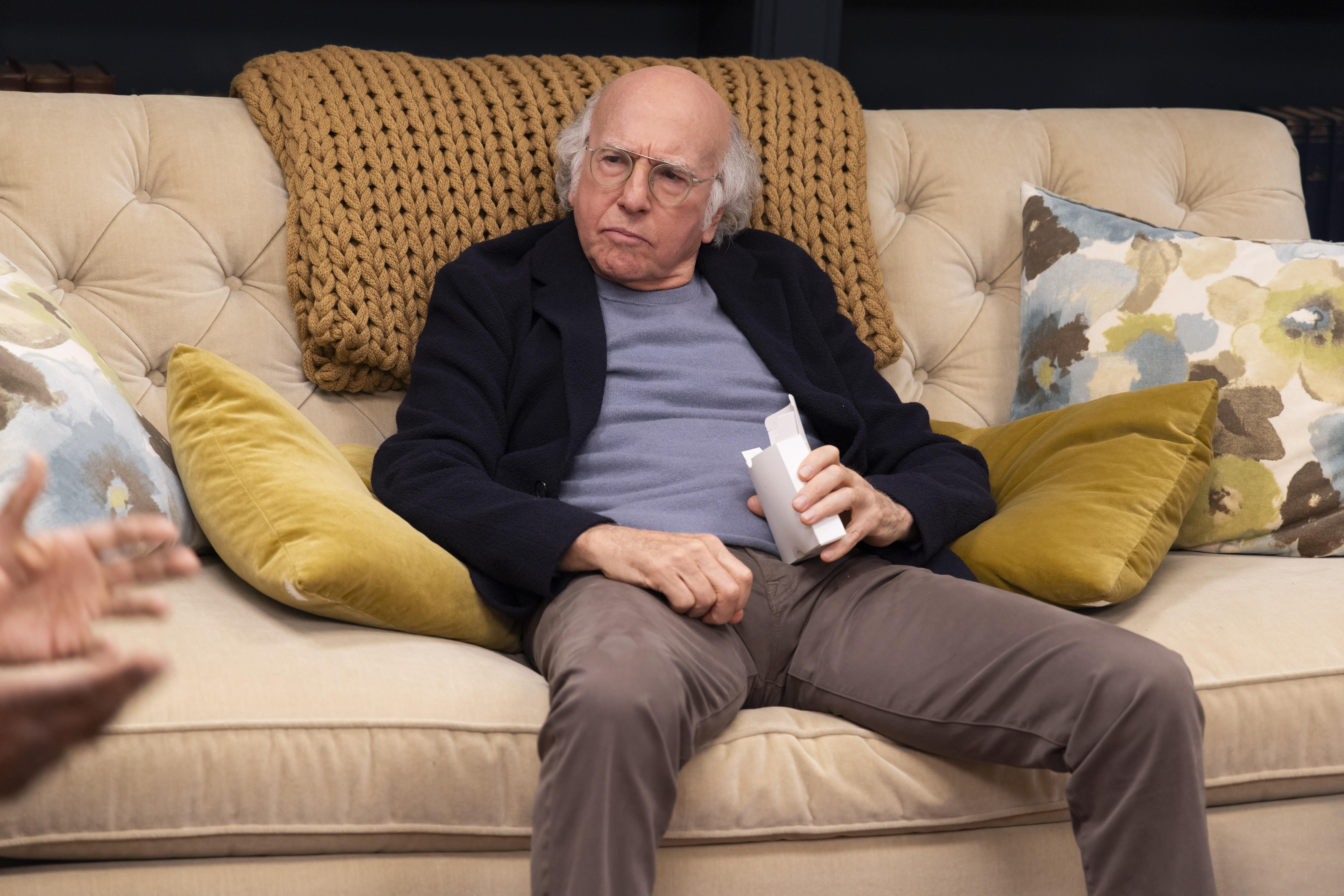Curb Your Enthusiasm remade the most hated finale ever – and this time, it worked
Larry David’s sitcom, which brought us his grouchy alter-ego, has finally bowed out after 12 seasons. The defiant finale was the perfect goodbye for TV’s most irreverent show, writes Louis Chilton


Your support helps us to tell the story
This election is still a dead heat, according to most polls. In a fight with such wafer-thin margins, we need reporters on the ground talking to the people Trump and Harris are courting. Your support allows us to keep sending journalists to the story.
The Independent is trusted by 27 million Americans from across the entire political spectrum every month. Unlike many other quality news outlets, we choose not to lock you out of our reporting and analysis with paywalls. But quality journalism must still be paid for.
Help us keep bring these critical stories to light. Your support makes all the difference.
It seems hard to believe it could have ended any other way. Curb Your Enthusiasm, the long-running HBO comedy created by and starring Larry David, finally bowed out on Sky Comedy on Sunday with the finale of its 12th and last season. There had been times before when it seemed like David was done with his grouchy, contrarian alter-ego – most notably after the eighth season in 2011, and the six-year gap that followed – but this time, there’s little doubt it’s over. What we got was part victory lap, part metacommentary: a characteristically unapologetic hour that ties together both halves of David’s almost unparalleled contribution to the past 35 years of American TV comedy.
The finale of David’s other inimitable, zeitgeisty studio sitcom Seinfeld, watched live by more than 76 million Americans when it first aired in 1998, was infamous. In it, the four lead characters – including co-creator Jerry Seinfeld as himself, and the David surrogate George Costanza, played by Jason Alexander – were put on trial for transgressions against polite society. It was one of the most widely disliked TV finales ever. Later, the seventh season of Curb – which reunited the cast as they staged a show-within-a-show Seinfeld revival – was widely interpreted as a do-over by stealth. And yet, with Sunday’s episode, titled “No Lessons Learned”, Curb doubled down, re-creating almost the exact plot of Seinfeld’s finale with gleeful abandon.
The episode focuses on the “trial of Larry David”, held ostensibly to determine his guilt over an apparent act of electoral interference. The trial is, to some extent, a convenient way of strolling through some of the series’ greatest hits. And when Larry stole shoes from a Holocaust memorial; when he clubbed a rare swan to death; when he commissioned an obituary for his aunt-in-law calling her a “beloved c***”. While the moral reckoning in Seinfeld seemed to come out of nowhere, it makes far more sense here. Curb has always been a series focused on one man’s battle against social norms. It’s Larry vs the world, now as it always has been.
“No Lessons Learned” is a loosely structured affair, a far cry from Curb’s early seasons, when concurrent plotlines would dovetail and collide with a kind of mad, inspired unpredictability. What the finale does have, however, is an absolute glut of callbacks and guest stars from years past. One of Curb’s great strengths has always been its supporting players: both the one-off celebrity guests, often playing themselves – everyone from Mel Brooks to Martin Scorsese to Shaquille O’Neal – and the regular supporting cast, including comedian Richard Lewis, who died a few weeks ago, and JB Smoove, who joined the series in season six as the outrageous Leon Black, one of TV’s all-time great mid-run additions. Also present is Jerry Seinfeld, who makes sure the parallels with Seinfeld’s capper are truly glaring. As Larry is freed from jail at the episode’s end on a technicality, he and Seinfeld joke that this is how they should have ended their series.
In a very meta way, “No Lessons Learned” is the perfect encapsulation of the Larry David persona: a man who refuses to learn, who refuses to change. Larry is many things – “petty, conniving, and frankly spiteful”, as someone puts it here – but above all, he is incorrigible. And though Curb’s sheer comic ingenuity may have waned somewhat over the years, its core provocative sensibility remained utterly impervious to change.
“Mr David, it seems you have a history of doing the same things wrong, over and over,” the judge (played by Breaking Bad’s Dean Norris) tells Larry, at one point. It’s true of David, and it’s true of Curb. But never has the wrong thing felt so very right.
Join our commenting forum
Join thought-provoking conversations, follow other Independent readers and see their replies
Comments